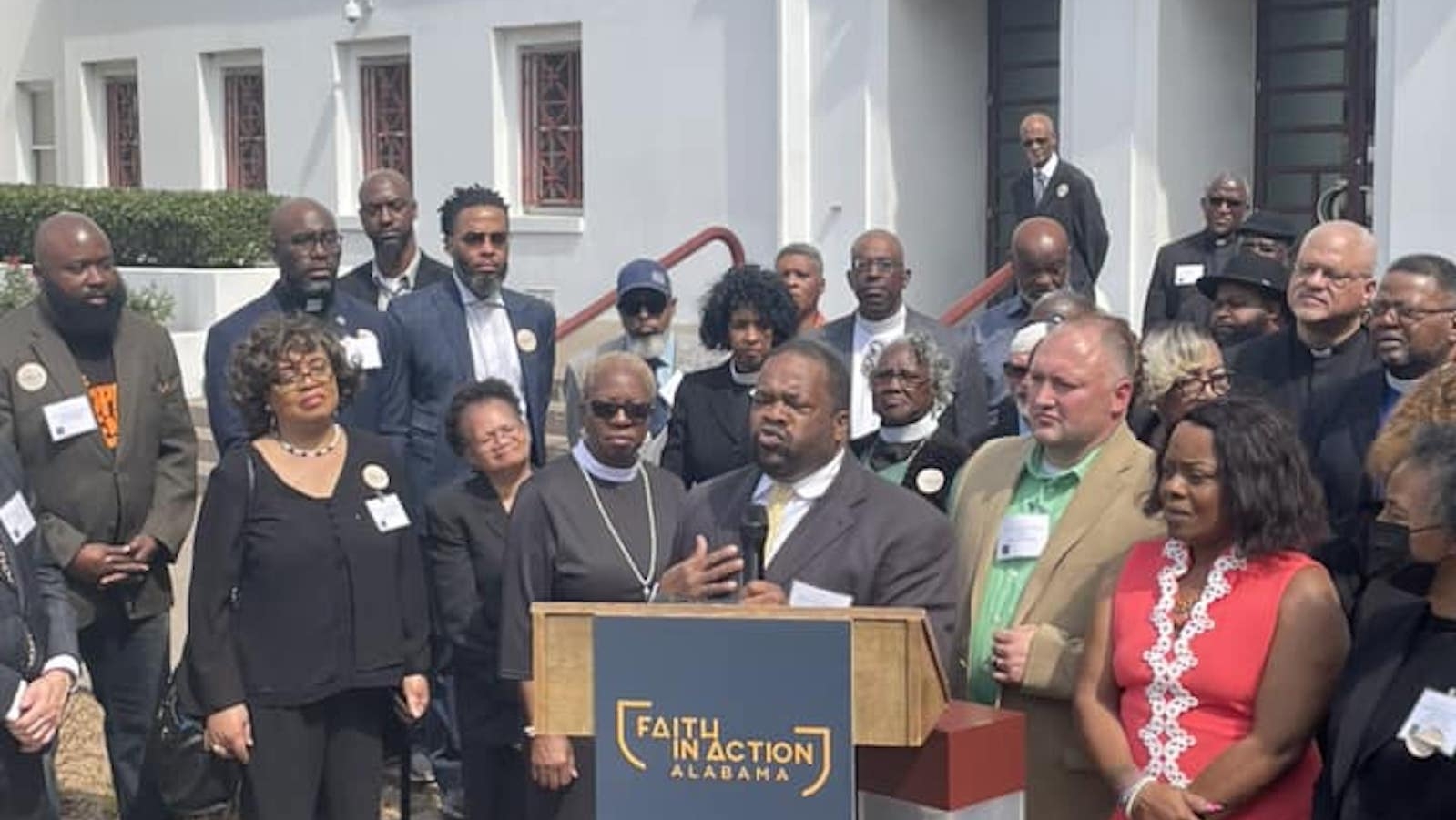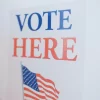|
Getting your Trinity Audio player ready...
|
Faith in Action Alabama, the state chapter of the nationwide multi-faith organization, gathered clergy and justice-impacted citizens in front of the Alabama State House building on Wednesday in support of legislation making it easier for formerly incarcerated Alabamians to be able to vote.
House Bill 96, sponsored by state Rep. Laura Hall, D-Hunstville, would allow justice-affected individuals to become eligible to vote after making payments towards court costs, fines, and fees related to their conviction for a minimum of one year. The current statutes require that fees be paid off in their entirety.
The bill would also allow the option for formerly incarcerated individuals seeking voter eligibility to complete court-appointed community service if they are unable to make payments towards court costs, fines, and fees.
If enacted, the Alabama Bureau of Pardons and Paroles would be required to notify individuals within 14 days of them becoming eligible to vote.
Faith in Action executive director Daniel Schwartz said on Wednesday that members of the group had conversed with policymakers prior to the gathering outside.
“Some are quite positive, some were ambivalent, but we’re we are hopeful,” Schwartz said.
The same legislation was passed by the Alabama state Senate and was brought before the House Judiciary Committee during the previous legislative session. However, it failed to reach the House floor and died before being considered by the body.
“We’re standing on the steps of the people’s state House, a symbol to bring the voice of many to the voice of one,” said Rabbi Steven Silberman of the Ahavas Chesed Congregation in Mobile on Wednesday. “Our voice is a united voice, calling out to redeem those who do not have a voice of their own.”
Rev. Nicole Newton of the First Presbyterian Church of Birmingham, who has a formerly incarcerated individual who is not able to vote in her family, insisted that the right to vote for the formally incarcerated means a way to fully re-enter society and exercise “their god-given rights” as citizens.
“I know personally that having that right restored helps people to reintegrate into the community,” Rev. Newton said on Wednesday. “To really claim their citizenship and their space in our state as their own.”
Martha Shearer, a trained social worker and justice-impacted mother of two, spoke on the importance of her ability to vote as it relates to her son, who recently left prison on supervised early release.
“Don’t let nobody tell you you are not a citizen, that you’re not important,” Shearer said. “My vote counts for my oldest son, and I speak for all that need their voting rights restored.”
Carmone Owens, a violence intervention specialist and minister at 6th Ave Baptist Church in Birmingham, said that if the pardon that would he is up for is not granted, the next earliest time he would be eligible to vote as a justice-impacted citizen would be 2042.
“I’ve paid my debt to society; I’ve learned from my mistakes,” Owens said. “I pay my taxes, but I don’t have a voice because I don’t have the right to vote.”


















































